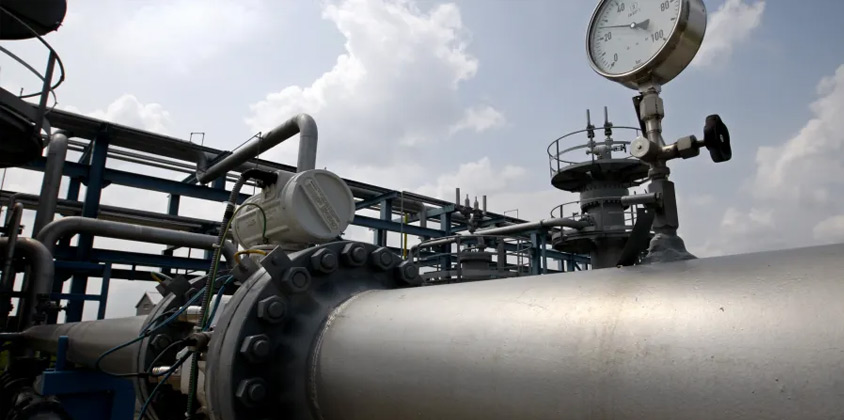What To Look Out for In EPC Contracts for Oil and Gas Pipeline Projects

EPC Contracts are a risk redistribution mechanism usually adopted by project companies where the risks associated with the development phase of a project are too great to be borne by the project company. It is an acronym for Engineering, Procurement and Construction and underlies the fact that the contractor or the party in charge of the construction phase (EPC Contractor) will be responsible for sound engineering, procurement of the materials and construction of the facility or project asset, and to deliver a completed facility/ asset ready to start operations.
With the FID (Final Investment Decision) now in place, the attention regarding Uganda’s oil exploration turns to the construction phase. Although the project is estimated to be completed by 2024, it may be delayed at the construction phase for a variety of reasons. In that regard the risk is still present that the asset (pipeline) may not be delivered on schedule and therefore the EPC Contract, the governing document regarding the construction phase, warrants close attention.
According to the Petroleum Authority of Uganda, the EPC Contract regarding Uganda’s Oil Pipeline project was awarded to WorleyParsons Limited UK, working with Newplan Engineers and Infra Consulting Services Uganda, together with Norplan Tanzania and Inter Consult Limited, Tanzanie. The ECP Contract is to be signed after the final investment decision which occurred recently. – https://www.pau.go.ug/the-east-african-crude-oil-pipeline-eacop-project.
To commit to finance a project of a magnitude such as the EACOP, financiers would consider the following factors: a fixed completion date; a fixed price/ cost for completion of the project; guarantees as to output e.g quantity of crude oil pumped; market guarantees such as offtake agreements; security from the project sponsors such as sovereign guarantees; damages for breach; etc. EPC Contracts usually address all these concerns and therefore it is such a significant document in project finance.
The EPC Contract should freeze and lock in project costs and rights. As such, risks related to cost overruns, construction risks, occupational risks, completion date/ schedule etc. lie with the EPC contractor. It is therefore important for the EPC Contract to take into account any and all risks that may arise during the construction phase and reallocate that risk to preferably the EPC contractor. Although EPC Contracts will in most cases be based upon FIDIC, the parties still have the right to negotiate and determine which clauses to include or exclude. The common considerations in negotiating EPC Contracts are:
- Who is responsible for the design aspects of the project and is there a definition adopted for “Good Industry Practice” to benchmark the performance of the Contractor? What is the obligation of the Project Company regarding the design plans? Does the contract accommodate variations for works and designs and in the event of loss, liability or cost overruns arising from variation, who is liable for this? Does the contract accommodate extension of time for completion? What consents are required for variations and or extensions for example lender consent?
- Where the EPC Contractor is a consortium or where subcontracts are involved, the EPC Contract should grant the project company recourse to each of the entities in the consortium or the subcontractors. The EPC contract should state that each of those entities are jointly and severally liable to the project company.
- How are the payments to be structured? Are there advance payment bonds to mitigate breach by the contractor? Does the contract provide for performance guarantee? What is the effect of breach and what happens if the facility does not meet performance criteria? What losses are envisaged in case of breach and are liquidated damages capped?
- The EPC contract could provide either a: (i) guaranteed maximum price (GMP) – where the contractor provides all the material and performs all the works for a lump sum fee; (ii) cost plus – where the contractor is paid the actual costs of labour and materials plus a percentage of those costs as the fee; or (ii) unit price where the contractor is paid an amount for each unit of work completed. The EPC Contract should similarly elaborate the damages payable by the contractor in case the obligations are breached, more so where the breach will affect the completion date or the quality and efficiency. These damages should account for the loss transferred to the project company because of the breach.
- How broad is the force majeure clause? What are the effects or consequences of a force majeure event? In what circumstances can work be suspended? Can the contractor terminate following prolonged suspension? What are the effects of suspension? In what circumstances can the contract be terminated and what are the effects? What is the mode of dispute resolution and what is the forum? Should the dispute resolution clause mirror that in other finance or security documents? What are the conditions or terms with regards to confidential information?
- What considerations are embedded with regards to environmental and social responsibility and who is responsible for this? Does the contract provide for indemnification to the project company arising from losses due to environment and social breaches?
- Is the contract assignable and is the contractor permitted to subcontract? What consents are required to assign or subcontract and who bears liability occasioned by the assignment or subcontracting of the contract? Subcontracting should not release the Contractor from his liability under the primary contract.
It is worth noting that the clauses will vary on a case-to-case basis but in cases, they would be guided by the potential risks facing the project at or arising from the construction phase. Once signed, the rights of the parties are locked in, and they can only claim or seek relief within the terms of the EPC contract. It is fundamental to study the risk facing the project and to accommodate this in the EPC contract.



